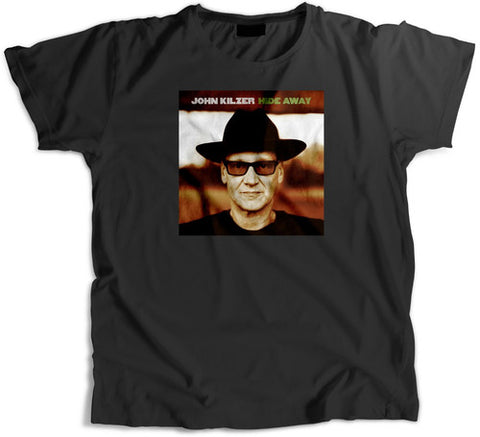John Kilzer
If you wanted to know about Memphis songwriter John Kilzer, you could start any number of places.
If you chose to go all the way back to school days, you could begin with Kilzer’s basketball career as a high school All-American, and later a highly-regarded player on the Memphis State roster. Or you could begin, more predictably, with his two standout roots-rock releases on Geffen Records, Memory in the Making (1988) and Busman’s Holiday (1991).
Considering his youth, Kilzer’s signing with Geffen was a coup even for a songwriter as strong and promising as he plainly was. In the days when Geffen was the prestige label for music as disparate as Sonic Youth’s roaring avant-guitars, Peter Gabriel’s world-music experiments, and Guns N Roses’ decadent metal, John Kilzer brought a raucous but intimate aesthetic to the label, a heartland-style rock rooted in Southern storytelling and character development. Like his label mate John Hiatt, Kilzer possessed the rare gift of being able to tell you virtually everything you needed to know about the men and women who populated his songs in the first four lines, often to a stomping backbeat that made the poetic intricacies of his lyrics all the more striking when you really paid attention. (Check his gritty single “Red Blue Jeans,” long admired among roots-rock aficionados, for evidence of Kilzer’s lyrical skills.)
Kilzer’s music brought him high-profile exposure; it was featured on MTV, and even on the quintessential ’90s series “Melrose Place.” That was the shiny side of the coin. The scarred side was years of the fast living that Kilzer finally came to realize was beyond his power to control. So you might pick up the story just after those records, with the tale of how a young, gifted artist battled his way back from addiction to arrive at a place of sobriety and peace—and how he worked to help others find their way back as well, through music.
Prior to his musical career Kilzer had earned a Master’s degree in English, even taught at Memphis State for three years. After entering recovery in 2000, he went back to school again—divinity studies this time—and merged his music work with his soul work. So you might begin with the music, by noting John Kilzer’s long and productive career as a songwriter for other artists. You might recount the catalog of musicians who’ve recorded his songs over the past 20 years, a list that includes country music royalty Roseanne Cash (“Green, Yellow and Red,” on her classic King’s Record Shop album), multiple CMT Award-winning country singer Trace Adkins, and Greenwich Village folk-blues legend Maria Muldaur, among others. Or you might begin on the soul side, with his Master of Divinity degree (2005) from Memphis Theological Seminary, with his Doctorate from Middlesex University in London England (2010), or with “The Way,” the music-driven Friday-night “recovery ministry” services he’s run regularly at St. John’s United Methodist Church, in the heart of midtown Memphis, since the year he received his Ph.D.
For years, most of John Kilzer’s work was gifted out to other people. His life has taken him from the major labels through major addiction to ministry. And though you could call him the Reverend Dr. John Kilzer, what he is at core is a songwriter who believes, as he once noted in an interview, that “All Memphis music is gospel music.” Drawing on the deep traditions of his beloved Bluff City, Kilzer’s songs are rooted in joyful soul, electric blues, and folk storytelling, making his music a rich blend of styles and approaches.
Hide Away finds John Kilzer turning in a new set of songs in that rich, cross-genre tradition, with the help of Memphis’s established musical community and members of the up-and-coming generation as well. Alvin Youngblood Hart, Luther Dickinson, Steve Selvidge, Bobby Manuel, Greg Morrow and Kirk Whalum, among others, all show up to help Kilzer bring it home. It’s a testimony to John Kilzer’s respected standing in the Memphis music community, and it’s the reason Hide Away marks a return to top form for a songwriter who knows, personally and professionally, how music can move, can shake, can heal us.
–Eric Waggoner



